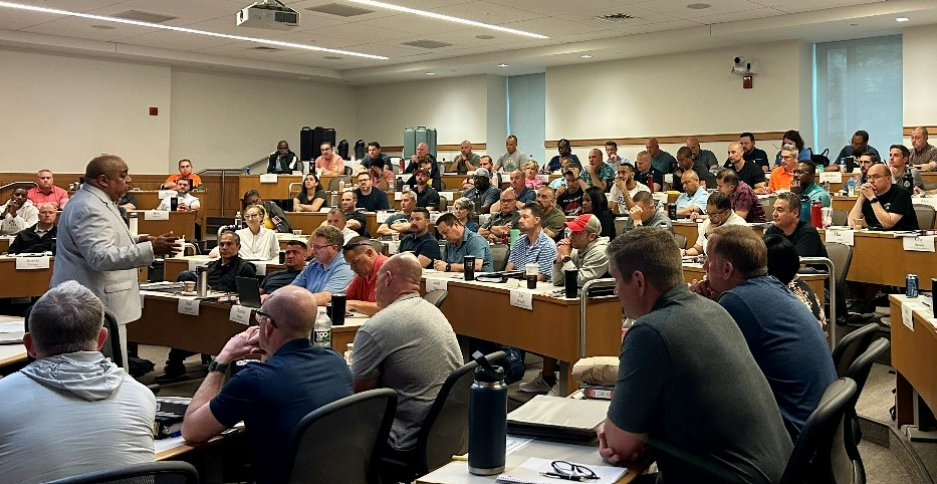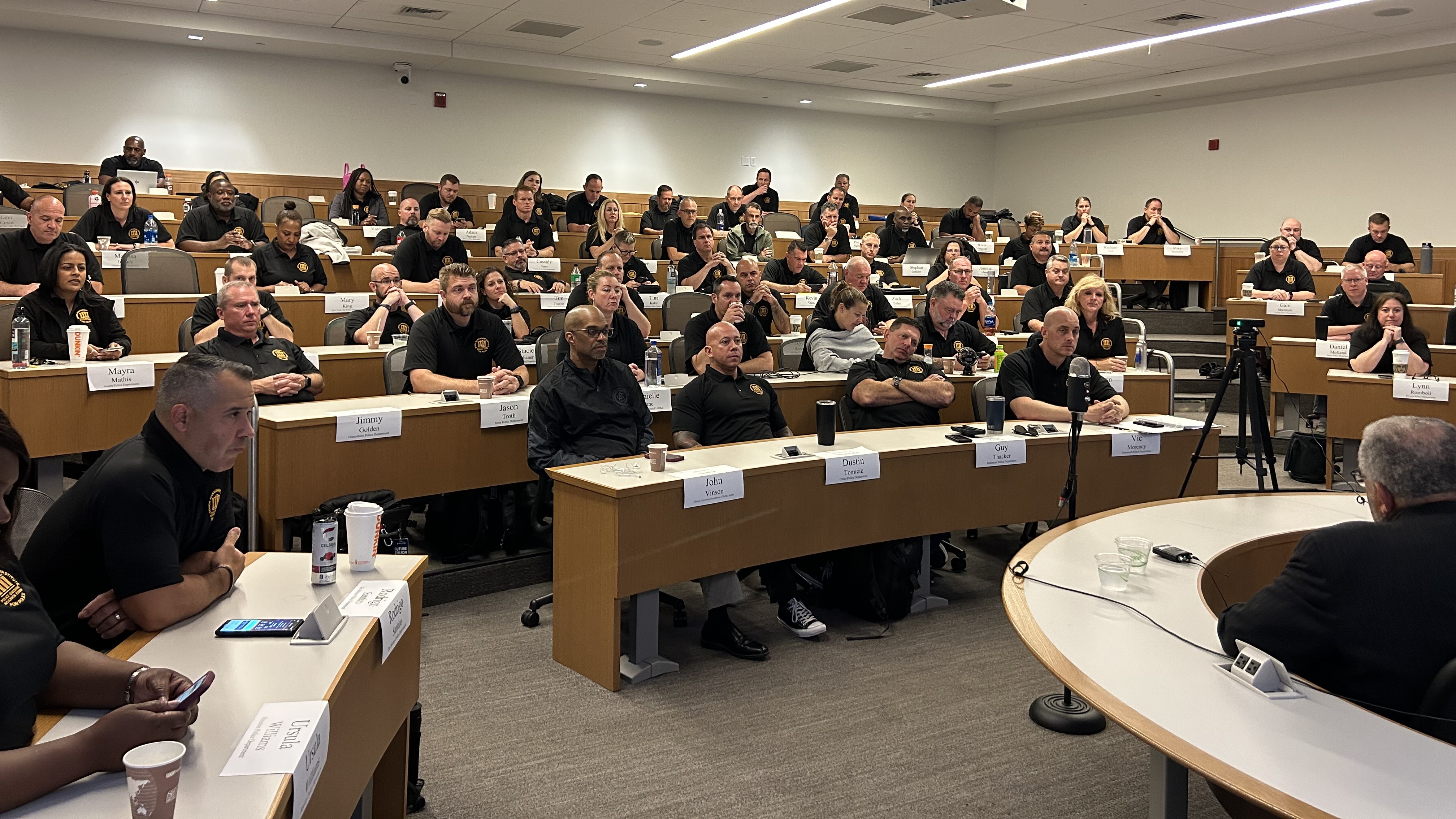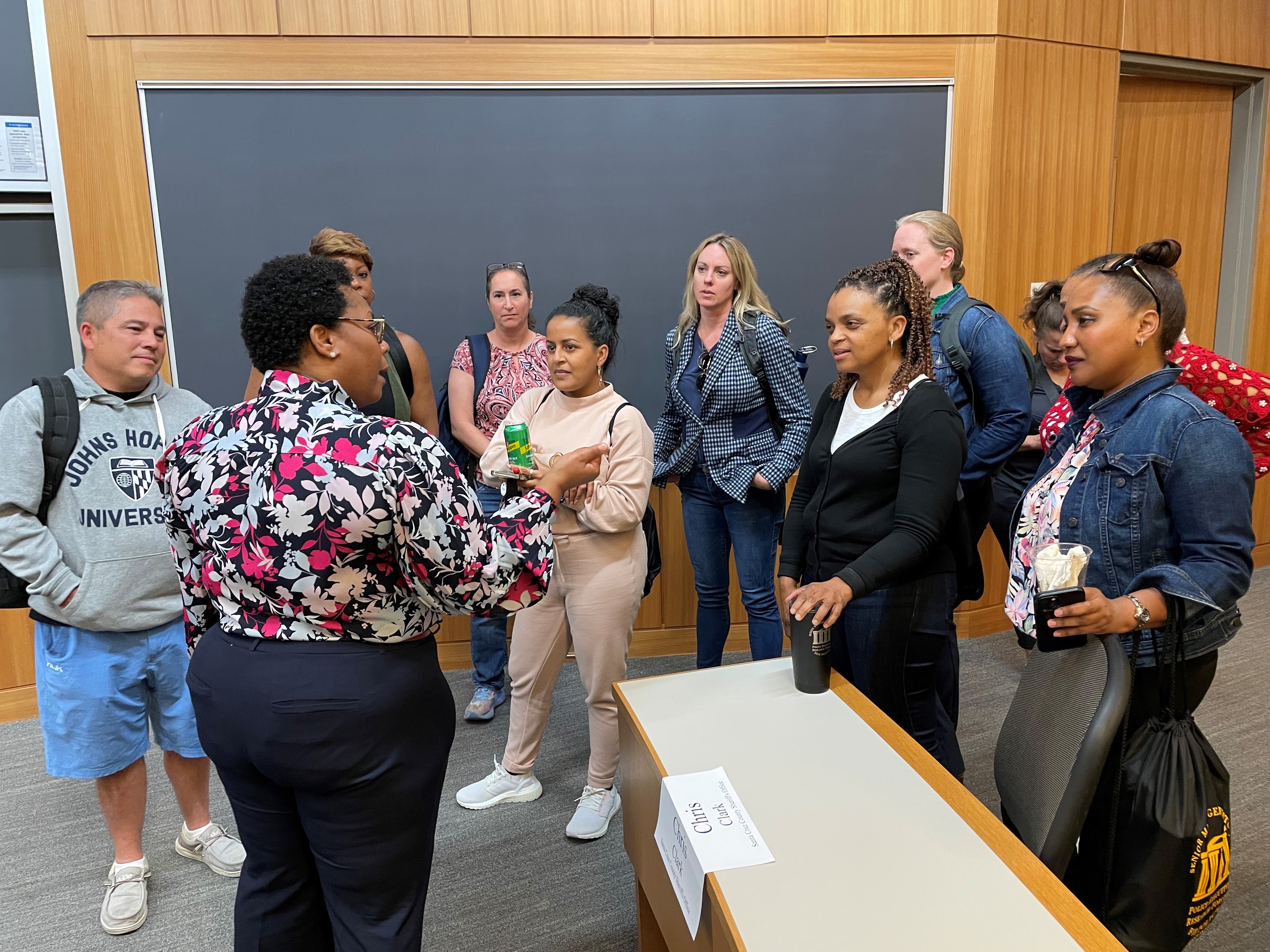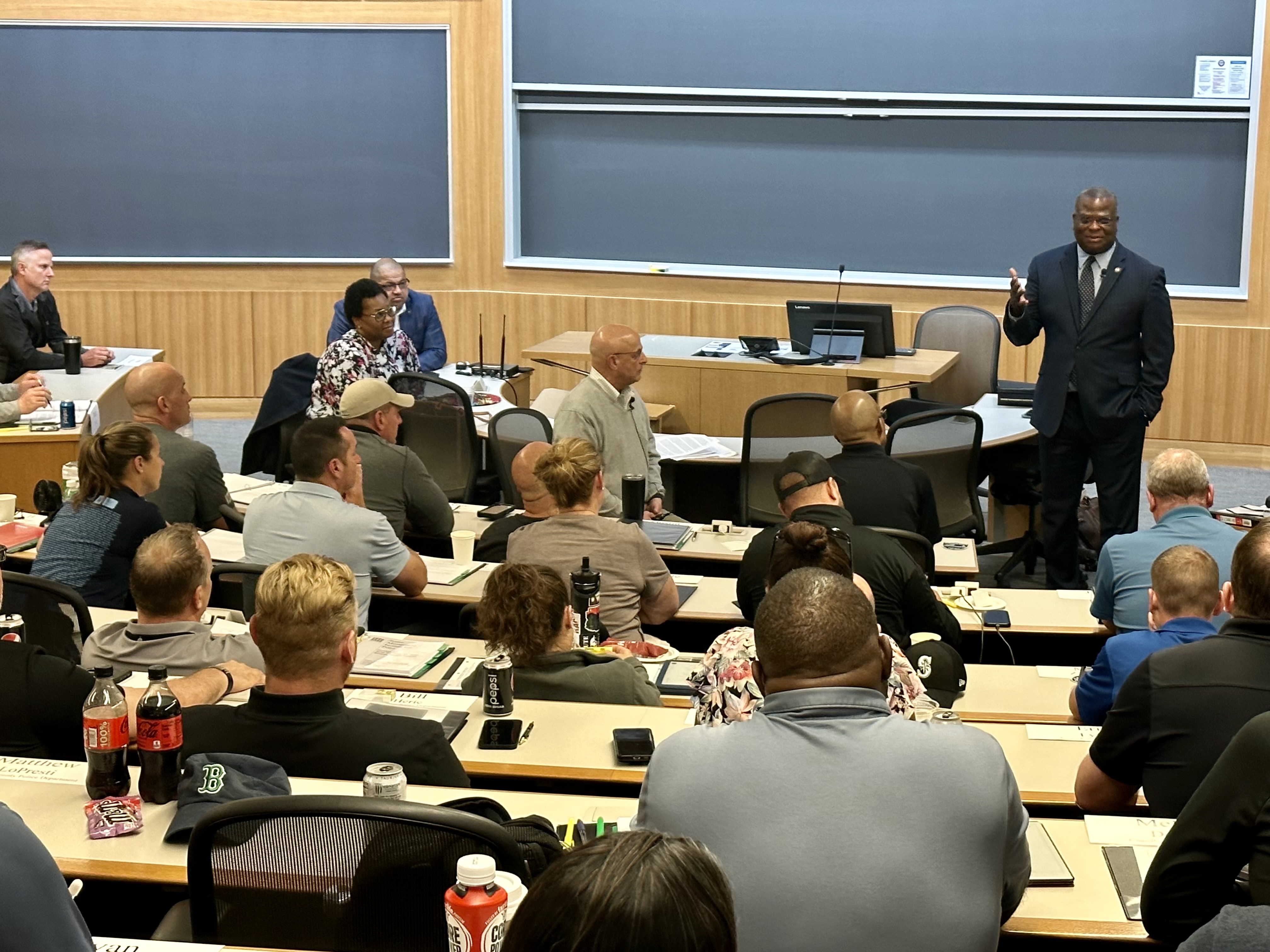|
June 24, 2023 Training the best and brightest future police leaders
PERF Members, Summer is here, and for PERF that means our Senior Management Institute for Police (SMIP) is in full swing. We are officially halfway through the 2023 program. Roughly 200 law enforcement leaders graduated from Sessions 86 and 87 of SMIP last week and another 200 will graduate before this year’s sessions are done. That will raise the total number of SMIP graduates to more than 6,500 since the program started in 1980.
Former Baltimore Commissioner and PERF President Michael Harrison speaks at SMIP. SMIP’s three-week program includes lively (and sometimes intense) classroom discussions, case studies, negotiation exercises, and study groups. SMIP isn’t your typical “nuts and bolts” police training: it’s management and leadership development. When students are in class, they discuss case studies that focus on organizational change, management, and decision making. When they’re out of class, they discuss with their colleagues issues like how their agencies are using body-worn cameras for training purposes or are looking to change their pursuit policies. Students attend this most recent summer session of SMIP. Every year we make programmatic tweaks to ensure SMIP stays cutting edge and fun. I’m especially proud of one of the changes we made this year: providing scholarship opportunities for the first time in SMIP’s history. With funding from MacKenzie Scott, PERF created ten scholarships for executives from agencies that might not have sent members to SMIP or might not be able to afford to do so without assistance.
The 2023 scholarship recipients are a diverse group of law enforcement executives from small- to mid-sized agencies around the country:
Several dozen very qualified police executives applied for this year’s scholarships. We hope to continue offering scholarship opportunities in future years. What makes SMIP such a successful and worthwhile program? I credit both the faculty and the students. We assemble the best minds from around the country to teach SMIP. As an executive development program, SMIP employs faculty from business schools and other university disciplines. The current faculty come from Harvard University’s Business School and Kennedy School of Government, the Massachusetts Institute of Technology (MIT), Johns Hopkins University, Dartmouth College, and the University of Texas at Austin. SMIP also includes presentations from active and retired chiefs and sheriffs. Teachers at this year’s SMIP, in addition to those pictured here, include former New York City Police Commissioner Bill Bratton, Norwood (MA) Police Chief Bill Brooks, former Boston Police Commissioner Ed Davis, Fairfax County (VA) Police Chief Kevin Davis, Seattle Police Chief Adrian Diaz, Former Commissioner of U.S. Customs and Border Protection Gil Kerlikowske, Minneapolis Chief of Police Brian O’Hara, former Seattle Chief Kathy O’Toole, and former Philadelphia Police Commissioner Chuck Ramsey. We fly in these experienced law enforcement executives from across the country to share their successes, failures, and lessons learned. They also talk about their current challenges — a chief implementing a consent decree, a new chief coming to a department that has never had an outsider, or a reformer encountering resistance within the department. These are some of the most compelling sessions at SMIP. Baltimore Police Deputy Commissioner Sheree Briscoe speaks with SMIP students. SMIP students also learn a great deal from talking with one another. Some tell us that these conversations are just as valuable as the classes themselves. And many students continue to reach out to each other over the course of their careers. SMIP attendees come from a diverse set of large, medium, and small agencies across the U.S., as well as from other countries. This year’s students, for example, come from more than 30 states (including 58 students from California alone) and four Canadian provinces. SMIP has also welcomed students from Australia, Bahrain, England, Hong Kong, Israel, Jamaica, Jordan, Northern Ireland, Pakistan, and Scotland. Attendees represent police departments, sheriff’s offices, and state and federal agencies; we’re also seeing an increase in attendees from university and transit agencies. To kickstart the information-sharing process among students, at orientation I ask each student to introduce themselves and describe “something that you’ve left on your desk.” In other words, describe a task or a challenge that is waiting for them when they return to their agency. I tell students to make note of the classmates who share their topic and then discuss their common challenges informally. For example, attendees from Atlanta, Dallas, and Houston have shared information about their cities hosting parts of the 2026 World Cup. And students from several agencies have connected to discuss issues with their body-worn camera programs. Boston Police Commissioner Michael Cox instructs SMIP students. This orientation exercise also allows me to give students a perspective on how the evolution of policing has affected SMIP discussions. Over the years, students have talked about emerging issues like building community policing, the threat of terrorism, the challenges of policing during the Great Recession, policing’s response to COVID-19, and the major national efforts to reform policing. We can’t predict what the next big issue will be, but SMIP prepares future leaders for tackling the challenges of a constantly changing world. SMIP has had several homes but generally has been held on college campuses, a setting that I think encourages learning and growth. (Virtually every year since 2000 we’ve held SMIP at Boston University.) The college setting also does a good job of setting expectations for participants — nobody arrives at SMIP expecting a king-size bed, 5-star dining, or a 1:00 p.m. tee time. But visiting Boston in the summer is a terrific experience for SMIP attendees. In the evenings and weekends, many take the opportunity to explore the city — ride the Duck Boats or attend a Red Sox game at Fenway Park, for example — or the greater New England region.
SMIP students attend a Red Sox game at Fenway Park. I want to thank PERF Senior Principal Matt Harman and Senior Principal Dan Alioto, who oversee SMIP, for all their hard work. (Today is Matt’s birthday and I hope he’s taking a well-deserved break from his SMIP duties to celebrate.) I also want to thank Executive Search Consultant Terry Chowanec, who has spent time sitting down with students to discuss their careers. And my thanks to my amazing assistant Soline Simenauer, who is like a traffic cop all season long — getting all of us in and out of Boston during the summer storms of the Northeast. I want to thank the rest of the PERF staff as well. Many organizations slow down in the summer, when schools are closed and many families take vacations, but SMIP, PERF’s Annual Meeting, and our various conferences don’t allow PERF to do that. These events are all-hands-on-deck efforts by PERF staff, and I’m grateful for having an amazing staff who always step up and get it done. Best, Chuck
|





